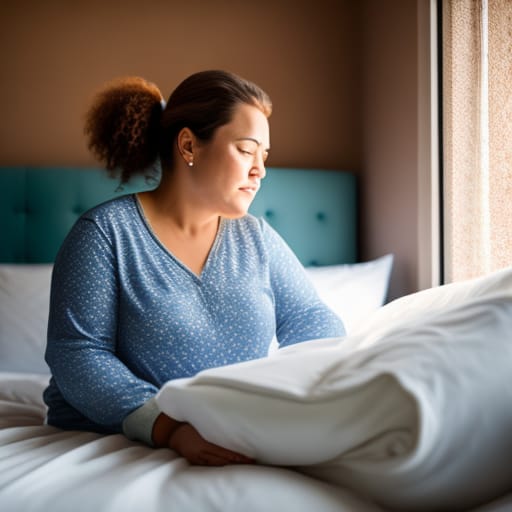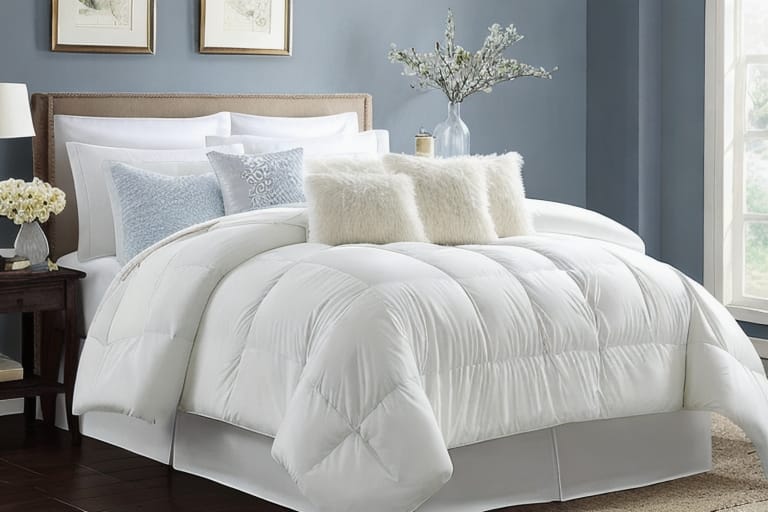Having night sweats can be an unpleasant and disruptive experience. Waking up drenched in sweat not only ruins sleep quality but can also lead to feeling exhausted, fatigued, and uncomfortable. For those prone to excessive sweating at night, selecting the right bedding is crucial. One common question is whether down comforters contribute to or help reduce night sweats.
What Causes Night Sweats
Night sweats refer to episodes of extreme perspiration that occur during sleep, often drenching sleepwear and bedding. They can have many underlying causes:
- Menopause and hormonal shifts
- Medications and supplements
- Low blood sugar
- Infections
- Stress and anxiety
- Environmental temperatures
For many people, night sweats result from having an inappropriate level of warmth from clothing and bedding while sleeping. The body loses its ability to properly regulate internal core temperature.
The Role of Bedding
The type of bedding and sheets used can either worsen night sweats or help provide relief, depending on how well they regulate body temperature. Factors to evaluate include:
- Breathability – allow moisture and heat to dissipate
- Warmth – insulation to maintain comfortable nighttime temperature
- Moisture-wicking – draws sweat away from the body
- Quick-drying – reduces dampness against the skin
Finding the right balance of features in sheets, comforters, duvet inserts and pillows is key to managing this troublesome condition.
Down Comforters and Night Sweats
Goose or duck down comforters are prized for their fluffy texture and impressive warmth. However, they also excel at trapping heat, moisture, and body odor. For those prone to excessive sweating at night, down comforters tend to exacerbate the problem.
Some of the issues with down bedding and night sweats include:
- Heat trapping – downs natural loft capacity holds in warmth but this can easily overheat
- Moisture retention – down filling absorbs sweat instead of wicking it away
- Breathability – air and moisture gets trapped in the filling rather than circulating
These factors create an uncomfortably humid microclimate underneath the covers. The trapped body heat and sweat triggers even more perspiration production. Too much time spent sleeping hot, damp and sweaty takes a toll on restful sleep.

Alternatives to Down Comforters
Fortunately, there are plenty of options for bedding inserts beyond down comforters that can help alleviate night sweats. These include:
- Wool comforters – naturally moisture-wicking and temperature regulating
- Cotton comforters – breathable and lighter-weight
- Synthetic filled comforters – designed with cooling gels or moisture control
- Duvet inserts – choose filler material ideal for your needs
The best approach is to match your bedding needs to your personal night sweat tendencies. Test out different systems until finding the perfect balance of breathability, airflow, and temperature control. With the right linens, you can finally enjoy restful, sweat-free sleep.
Frequently Asked Questions
What causes night sweats?
Night sweats can be caused by hormonal changes, medications, infections, anxiety, environmental temperatures and inappropriate bedding. The body struggles to regulate its core temperature leading to excessive sweating.
Should I get a down comforter if I have night sweats?
Down comforters are not recommended if you experience frequent night sweats. The excellent heat retention traps body heat and moisture leading to more sweating. Choose alternatives like wool, cotton or synthetic comforters.
What features help bedding reduce night sweats?
Look for bedding that is ultra-breathable, moisture-wicking and quick-drying. These features allow heat and sweat to dissipate instead of accumulating around the body. Proper temperature regulation is key.
Is cotton or wool bedding better for night sweats?
Both cotton and wool are more breathable and moisture-wicking than down. Wool regulates body temperature effectively to prevent overheating or sweating. Cotton is lighter and cooler while still absorbing some moisture.
Should I get cooling bed sheets for night sweats?
Yes, cooling bed sheets can make a big difference in managing night sweats. Look for moisture-wicking sheets along with technologies like Outlast® that proactively absorb and release heat to maintain optimal temperature.
What’s the best room temperature for night sweats?
Keep bedroom temperatures around 60-67°F at night. This cooler ambient temperature prevents overheating and gives night sweats relief. Use lightweight, breathable bedding as well.








